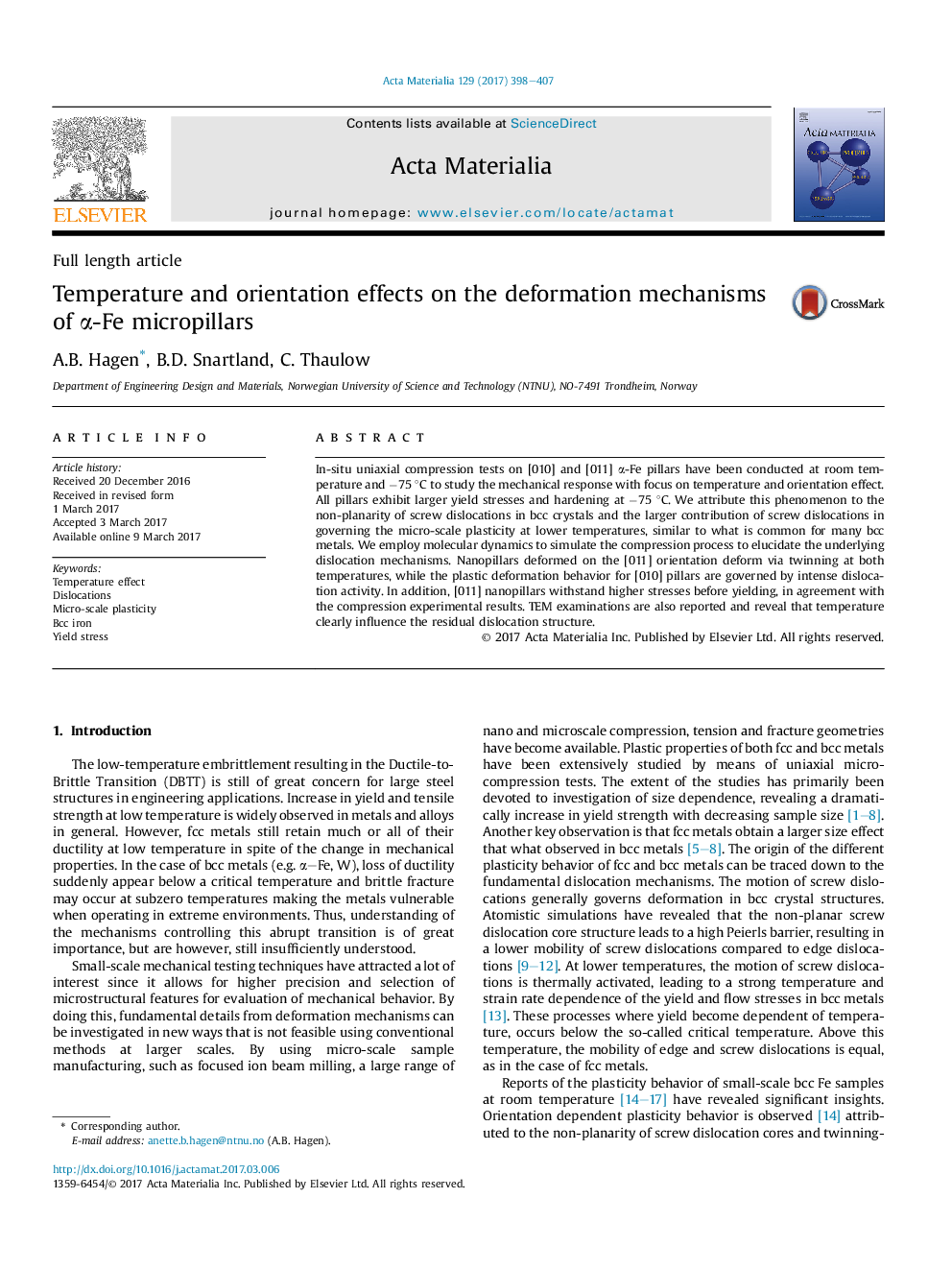| Article ID | Journal | Published Year | Pages | File Type |
|---|---|---|---|---|
| 5436236 | Acta Materialia | 2017 | 10 Pages |
In-situ uniaxial compression tests on [010] and [011] α-Fe pillars have been conducted at room temperature and â75 °C to study the mechanical response with focus on temperature and orientation effect. All pillars exhibit larger yield stresses and hardening at â75 °C. We attribute this phenomenon to the non-planarity of screw dislocations in bcc crystals and the larger contribution of screw dislocations in governing the micro-scale plasticity at lower temperatures, similar to what is common for many bcc metals. We employ molecular dynamics to simulate the compression process to elucidate the underlying dislocation mechanisms. Nanopillars deformed on the [011] orientation deform via twinning at both temperatures, while the plastic deformation behavior for [010] pillars are governed by intense dislocation activity. In addition, [011] nanopillars withstand higher stresses before yielding, in agreement with the compression experimental results. TEM examinations are also reported and reveal that temperature clearly influence the residual dislocation structure.
Graphical abstractDownload high-res image (249KB)Download full-size image
